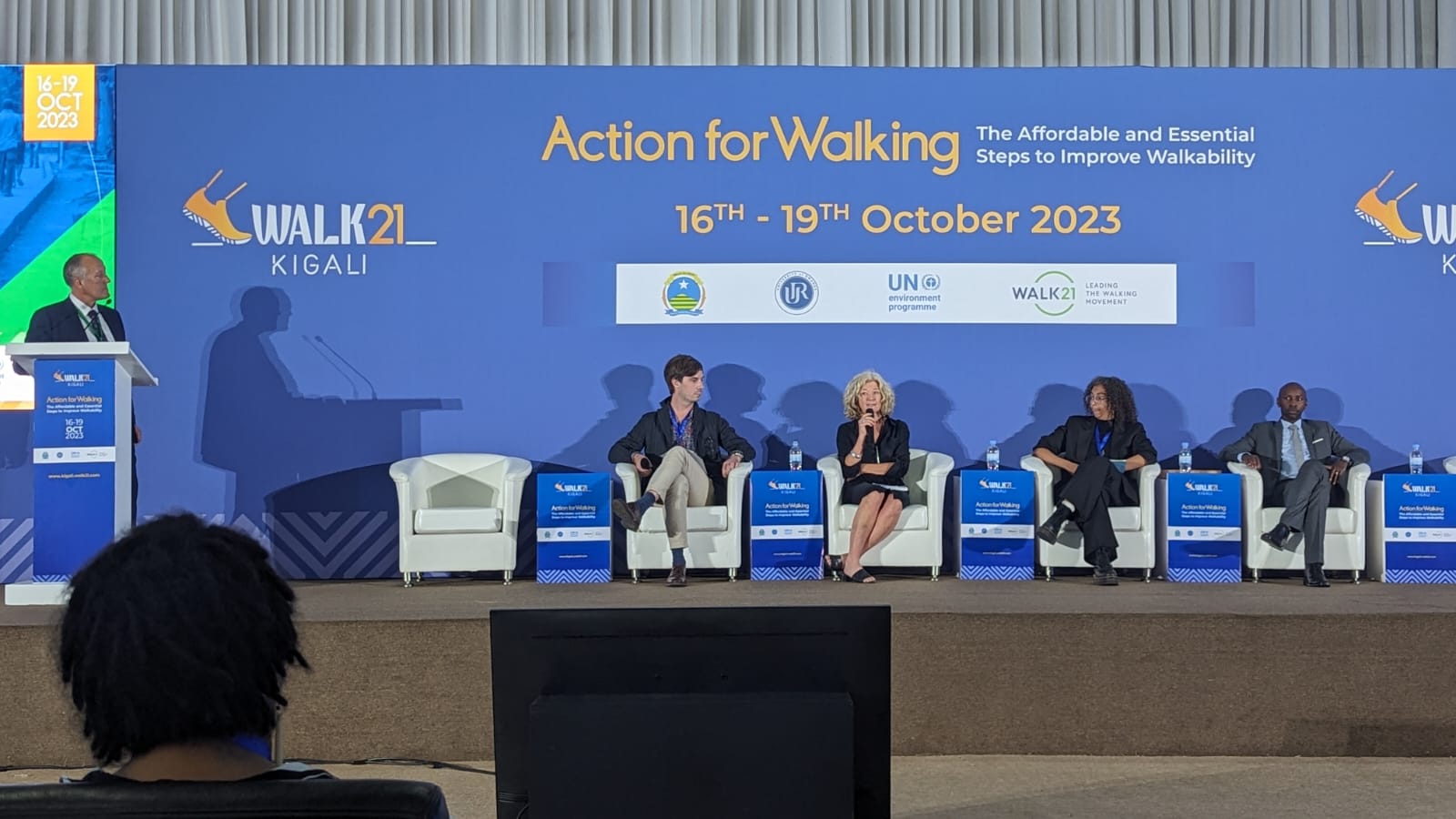
This year’s International Walk21 Conference on Walking and Liveable Communities hosted by the University of Rwanda, in partnership with the City of Kigali, UNEP, and Walk21, focused on how to deliver walkable communities and safer streets, promote community participation, and the value of walking.
The Conference brought together experts from across Africa and around the world to share their insights and expertise on developing and implementing walking policies and programs. The discussions emphasized the importance of pedestrian-friendly cities for health, equity, sustainable development, and social cohesion. Participants also called for public authorities to treat walking as a travel mode equal to private cars and public transport and to create appealing and safe pedestrian infrastructure networks.
The Alliance presented findings from its recent research on implementing 30 km/h zones in Africa. It was conducted in partnership with the Milken Institute School of Public Health at the George Washington University and Alliance member NGOs in Cameroon, Kenya, and Rwanda. This project is funded by UK Aid through the Global Road Safety Facility (GRSF). During the plenary sessions, Patrick Kinyanjui from the Alliance emphasized the importance of pedestrian safety for sustainable transport and pushed for interventions that have been proven to save pedestrian lives. The Alliance believes that “if we don’t measure sustainability with walking, we’re not measuring it at all.”
Walk21’s vision to create streets for life by prioritizing walking, cycling, and celebrating spaces for people aligns closely with the #RethinkMobility message promoted through the Mobility Snapshots and NGOs’ advocacy for 30 km/h limits.
At the end of the week, the Alliance held a training session in the streets of Kigali to demonstrate how to use Mobility Snapshots to assess the pedestrian experience at intersections. This helped participants to put the inspiration from the Conference into practical action back home. The Alliance appreciates the participation of Gladys Nyachieo and Shanna Lucchesi from iRAP, and the training and support of Vincent Mutebi from TotalEnergies.